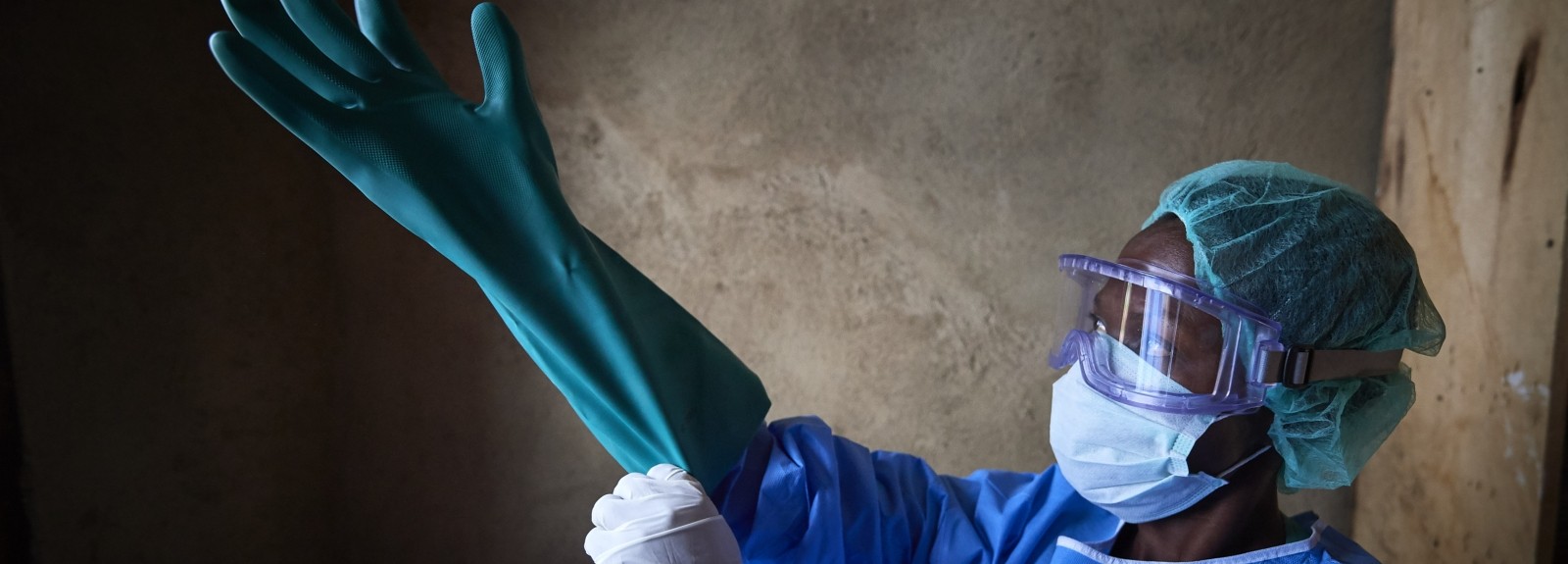Collaboration is at the core of Corus’ ethos. It’s how the organizations within the Corus family connect and catalyze each other’s expertise and experience to innovate holistic solutions to overcome the interconnected challenges of poverty, health care access and climate change. It’s the way we accompany our local partners as they lead the implementation of development projects to achieve lasting change in their countries. It’s fundamental to Corus’ work across systems and in how we realize exponential impact across the globe, in places like Sierra Leone.
Health systems strengthening in Sierra Leone
Sierra Leone’s maternal, infant and children under five mortality rates are amongst the highest in the world. More than a quarter of children under five are affected by stunting. Despite the country’s efforts to improve health in recent years, communicable diseases and other preventable causes continue to result in devastating health outcomes. In the past decade, Sierra Leone’s health system faced two enormous crises, in the form of the world’s largest Ebola outbreak in West Africa in 2014-2016, and the ongoing COVID-19 pandemic. The risk for future epidemics and other public health crises remains high. Collaboration across all levels of Sierra Leone’s health system – from community health workers (CHWs) to Ministry of Health and Sanitation officials to local and international development actors – is vital to transform health care in the country.
For nearly 20 years, Corus organization IMA World Health has built and supported integrated, holistic and sustainable health systems that increase access to quality health care in low-income countries, like Sierra Leone. IMA World Health’s approach follows the World Health Organization’s six building blocks of health systems strengthening (HSS), and within each block, IMA World Health prioritizes strengthening local capacities.
For example, IMA World Health has collaborated with Africa Christian Health Associations Platform (ACHAP) since its official incorporation in 2012, supporting their secretariat and increasing the technical capacities of their member organizations, Christian Health Associations (CHAs). Over IMA’s decade of partnership with ACHAP, the regional coordinating body has grown to encompass 40 national level faith-based networks providing health services in 32 countries across Sub-Saharan Africa. IMA World Health now partners with ACHAP to improve maternal and child health globally through USAID’s MOMENTUM Integrated Health Resilience and to strengthen the local capacity of CHAs in Sierra Leone and Zimbabwe to advance COVID-19 vaccine demand and delivery through the Promoting COVID-19 Vaccine Equity through Faith-Based Networks in Africa (COV-FaB) project.
In addition to strengthening local capacities, building resilient health supply chains are the cornerstones of efficient health care systems as well as a driving force in improving equity, quality and access to essential services and medical products. To this end, IMA World Health is a founding member of the Partnership for Quality Medical Donations or PQMD, which began in 1996 as the Product Donations Steering Committee. The organization has grown into a global alliance of more than 40 corporations and nonprofit organizations leading the development and championing of high standards in medicine and medical equipment and services donations.
IMA World Health is also currently collaborating with the Ecumenical Pharmaceutical Network (EPN) to implement the Smart Leveraged Church Supply Chain (Smart LCSC) project in Sierra Leone and Nigeria. The project strengthens Christian Drug Supply Organizations (DSOs) to ensure that a consistent supply of affordable and quality-assured medical products reaches communities across sub-Saharan Africa. To improve preparedness for future shocks, EPN and IMA World Health are implementing smart supply chain best practices and strengthening data management while developing the technical skills of health care personnel to build stronger and more sustainable systems.
Long-time partnerships in Sierra Leone
Corus organization CGA Technologies has collaborated with Sierra Leone’s Ministry of Health and Sanitation (MoHS) since 2011 to improve the quality of health care delivery by strengthening the management of health workers and improving resource management. The success of this work led directly to new partnerships with government ministries, national organizations and international stakeholders that not only address health, but also education and social protection.
In 2017, CGA Technologies built the MoHS Attendance Monitoring System (AMS) as part of DFID’s Saving Lives in Sierra Leone program. The AMS is a near real-time electronic reporting system used in health facilities across Sierra Leone to monitor health worker attendance. The system enables MoHS to better manage staff and apply sanctions to those with unauthorized absences. Since its implementation, the system has helped reduce corruption, improve government spending efficiency and improve attendance. In the first six months alone, data from hrhsl.org led to MoHS savings of GBP 238,156 (USD 287,559) through the identification and removal of ‘ghost’ staff and through salary sanctioning of staff with prolonged unapproved absence. The savings gave the government the fiscal space to pay health worker salaries, and enabled budget support from the Global Fund to reinvest in service delivery.
School leaders participate in a training of the teacher attendance monitoring app in Segbwema, Kailahun District, Sierra Leone.
The MoHS continues to use the AMS since CGA Technologies handed the system over in 2018. Its success led directly to CGA Technologies’ collaboration with the Teaching Service Commission (TSC) and the Ministry of Basic and Senior Secondary Education (MBSSE), who sought to implement a similar system, Wi De Ya, to improve management of education resources and build an equitable, inclusive education system aligned to learner needs.
Ongoing collaboration
Whether collaborating with CHAs and pharmaceutical networks to improve equitable access to health care for remote communities or collaborating with national governments to support the implementation of health policies and strengthen systems, the Corus family of organizations leverages expertise and experience across sectors. Such collaboration spanning all levels of the health system is vital to sustainably advance public health in Sierra Leone.

